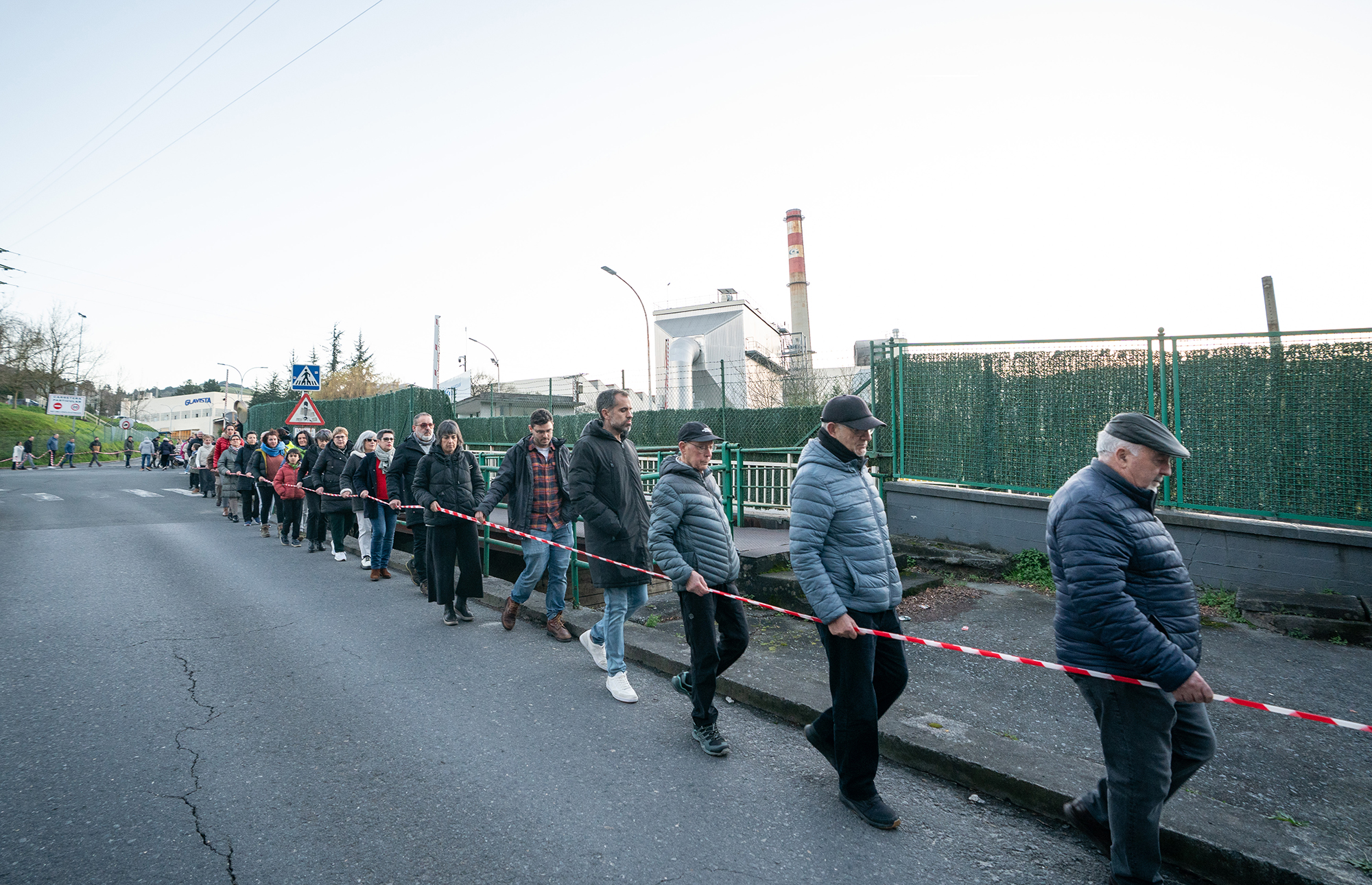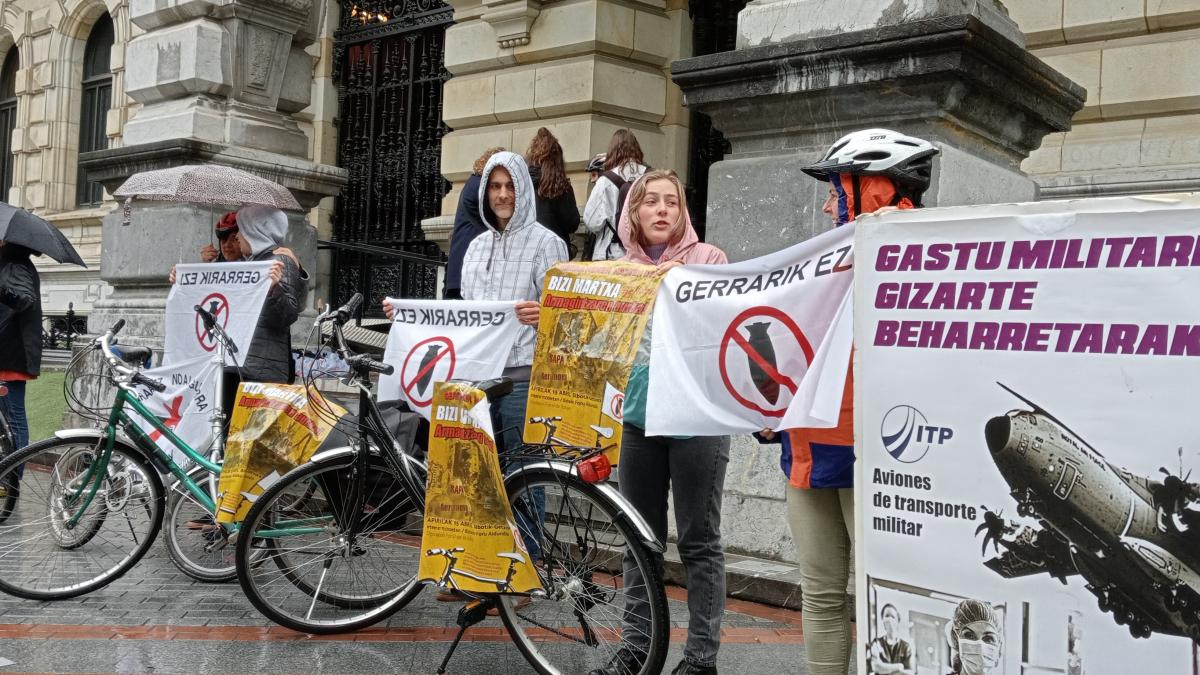There are reasons, but entrepreneurs do not want to
- The four-day working week formula was tested last April in Valencia, chaining four Mondays as holidays. The assessment report has recently been published with obvious results: the mental health of workers has thanked the 32-hour day. Stress has been reduced, more sleeping, better eating, more physical exercise than normal or family reconciliation has been facilitated (gender roles have also been seen, women have been more careful). It has become apparent, as the formula involves constant improvements. However, the vast majority of big business people do not think of the idea. They even want teleworking to disappear.

The PSOE and Sumar have reached an interesting agreement for the formation of the Spanish Government, with a reduction of working hours of 38.5 hours in 2024 and 37.5 hours in 2025. The measure will affect both the public and the private sector if it is finally implemented. The staff of the public sector of Hego Euskal Herria have a 35-hour day and in the agreements of different sectors have already established 37.5 hours. However, if the reduction in working hours in the Spanish State is a reason for widespread satisfaction. 40 years ago Spain established the 40-hour working week and since then no movement has taken place.
The Basque Government will launch a pilot project next year in Araba, Bizkaia and Gipuzkoa. Not across the board, and the details are to be refined, but something is expected to be done because both the government and the CCOO and UGT are in tune with the Social Dialogue Bureau. The third leg of the Meeting Point, the boss Confesbask, came down from the boat just to formulate the idea.
At the beginning of next year the Social Dialogue Bureau will be reconvened and something similar to what has been done in Valencia is expected to arise.
The possible application of a four-day working week on the road will find it difficult to go beyond trial periods. The survey firm KPGM has just questioned the delegated advisers of large companies in the Spanish state, and the report shows data of interest. The results to be taken into account are, in short, the capacity of large companies to exert pressure on organisations.
Firstly, if politicians are going to take care of these companies, let us forget about the four-day working week: the advisors of large companies want to increase productivity with the same number of hours and, in addition to doing so from the office, minimizing the possibilities of working from home.
Moreover, they want to “reward” their return to the office. Nine out of ten companies surveyed would be willing to offer additional pay to those who leave teleworking and return to the office, because they consider that teleworking has “significantly reduced” the productivity of workers.
Moreover, the disappearance of teleworking is not considered to be utopian. Almost eight out of ten are convinced that all staff will return to offices within three years.
The City of Valencia has
conducted 2,100 surveys of a worker, and the test period report has shown that the four-day working week involves improvements in the lives of workers.
They have come to the conclusion that it has improved health and well-being, and more importantly, the workers themselves have noticed it. Stress has been reduced considerably – four out of ten have said – and some sensations have been improved, such as those related to tiredness, happiness or personal satisfaction.
Physical exercise influences personal well-being and it has become apparent that a 40-hour working week leaves less time than desired to do sport. Therefore, four out of ten respondents claim to have exercised more than usual, especially those under 40, and people have gone more than normal to natural spaces.
On the other hand, almost all have spent more time doing some cultural activity. One in two has spent more time reading than normal, and two in three say that on digital platforms you've been seeing more shows or movies than usual.
Finally, the difference between men and women has been evident. For example, half of men have practiced more physical exercise, in the case of women it has been about a third, and in relation to care, the balance is exactly the opposite.
Working hours and productivity Working hours,
well-being and occupational health. The three concepts are interrelated. And for entrepreneurs, there's a fourth point: productivity. It has been demonstrated that long working hours increase the chances of occupational accidents, and in addition, as has been demonstrated in numerous reports in the Spanish State, long working hours and productivity can be inversely proportional. In other words, productivity is decreasing with more hours of work.
Spain has a serious problem with productivity, and the Ministry of Labour has been insisting that in recent years the number of working hours should be reduced, but no significant measures have been implemented. According to the latest data provided by the OECD, an average of 1,644 hours a year is worked in the Spanish State. 300 hours more than in Germany. In days, these are over 37 working days of eight hours.
In Denmark, for example, they work 270 hours less than in Spain and 130 hours less in France.
Productivity, a source of concern, the 27 Member States
of the European Union spend an average of 1,571 hours a year, 70 hours less than in Spain. Conversely, in terms of productivity, according to Eurostat, if Europe’s average productivity index is 100 points, the Spanish index stands at 95. That of France, in 114.
Now look at the other side: Ireland's productivity is 218, by far the highest, and similar days in the Spanish State are somewhat more. Conversely, in Luxembourg there are about 200 hours a year less than in Spain, with a productivity rate of 163.
The idea of going
“at ease” to work is closely linked to productivity, which we could call satisfaction. To go wrong is one thing, and another is the phenomenon of the Great Resignation that has spread after COVID-19: it tends to voluntarily leave the work of the workers because they are not at work or because the conditions offered to them are very scarce. It is an issue that can turn into a crisis for capital.
People who leave work for these reasons have been taking the figures for a long time. Well, as regards the ‘satisfaction’ of working, the data of the Spanish state are terrible, the worst since 2001, and the worst compared to the EU countries. According to the latest report produced by Eurostat, one in four workers in the Spanish State states that they go “with great pain” to work. The EU average is just over a tenth.
Mental health on the horizon
Undoubtedly influences the health of workers the way to manage and support the job and work. The World Health Organization has reported on the subject. In addition, some institutes have said that companies are more competitive if they have a better health of their workers.
According to the report of the Spanish Ministry of Labor, nine out of ten workers in the last year claim to have suffered the stress, which reaches 12 and a half million inhabitants, and four out of ten live in constant stress. Stress usually occurs in children under 45 years of age, especially in women. Most argue for lack of time, tiredness and lack of sleep. Eight out of ten have problems with family reconciliation.
Bandera amerikanoz inguratuta, muga-zergen oldarraldi berria iragarri zion munduari Donald Trumpek apirilaren 2an. Geroztik hamaika astindu jasan dituzte burtsek eta nazioarteko merkataritzak. Baina hau ez da zoro baten boxeorako ringa bakarrik: AEBetako politikan hamarkada... [+]
Washington, D.C., June 17, 1930. The U.S. Congress passed the Tariff Act. It is also known as the Smoot-Hawley Act because it was promoted by Senator Reed Smoot and Representative Willis Hawley.
The law raised import tax limits for about 900 products by 40% to 60% in order to... [+]
At the beginning of the year, the Zedarria group publicly supported the "opening of the debate" on the "defense" industry (as well as the nuclear industry), to which the Basque Government has immediately joined. First, through Mikel Torres, Vice President and Economic Counselor, who... [+]
Public education teachers have the need and the right to update and improve the work agreement that has not been renewed in fifteen years. For this, we should be immersed in a real negotiation, but the reality is deplorable. In a negotiation, the agreement of all parties must be... [+]

























